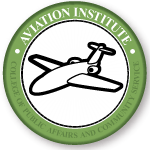Author ORCID Identifier
Document Type
Article
Publication Date
11-25-2018
Publication Title
International Journal of Aviation, Aeronautics, and Aerospace
Volume
5
Issue
5
DOI
https://doi.org/10.58940/2374-6793.1283
Abstract
Brazil is the largest country in Latin America and has a considerable amount of air traffic volume domestically and internationally. Wildlife strikes are an increasing safety and economic concern for aviation operations in Brazil. The Brazilian Aeronautical Accidents Investigation and Prevention Center (CENIPA) has published annual reports summarizing the results of analyses of the data in a national level since 2009. The goal of this study was to supplement the CENIPA’s annual reports with information derived from the analysis of wildlife strikes to aviation, during 2011-2016, from the three busiest international commercial airports in Brazil: Guarulhos, Brasília, and Galeão. A set of descriptive analysis was conducted to present the overall characteristics of wildlife strikes at and around those three airports. In addition, statistical comparison of wildlife strikes with different factors was conducted. Analysis of these data indicated an increasing trend of wildlife strikes from 2011 to 2016. Results also indicated that the majority of the damaging strikes occurred during the departure phases of flight at the studied airports. The distributions of wildlife-strikes per phase of flight, per quarter of the year, per type of operator, and per period of the day are presented in this paper. Results indicated that, during the period studied, most strikes in Guarulhos occurred during the first, and in Brasília and Galeão during the second quarter of the year, respectively. Findings suggested that the risk of a damaging strike is higher at dawn in Guarulhos and Galeão, and during the day in Brasília. Findings of this study could facilitate the integration of Safety Management Systems (SMS) and wildlife hazard management programs (WHMP) by airport operators and air carriers. Additionally, current findings may inform the development of national policies and standards in Brazil as well as the future integrated research and management efforts to mitigate wildlife strikes.
Recommended Citation
Mendonca, F. A., Huang, C., Carney, T. Q., & Johnson, M. E. (2018). Assessing the risks: An analysis of wildlife-strike data at the three busiest Brazilian airports (2011-2016). International Journal of Aviation, Aeronautics, and Aerospace, 5(5). DOI: https://doi.org/10.58940/2374-6793.1283
Creative Commons License

This work is licensed under a Creative Commons Attribution-Noncommercial-No Derivative Works 4.0 License.

